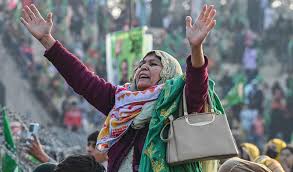The Punjab caretaker government has announced the provincial budget for the upcoming fiscal year, focused primarily on funding non-development expenditure for the next four months.
The total outlay of the budget stands at Rs693 billion for 2018-19 with health and education sectors tipped to be priority. Out of this figure, Rs100 billion have been allocated as development budget to fund ongoing development schemes.
“Under Article 126 of the constitution, the caretaker cabinet can authorise expenditures of four months from the Provincial Consolidated Fund,” said Punjab Finance Minister Zia Haider Rizvi in a press briefing
He said the basic mandate of the caretaker government is to conduct free and fair elections. “We are here to conduct elections so we are not going to impose any new taxes nor are we going to put any extra burden on the provincial exchequer,” he said, adding that in line with the federal government initiative, a 10% increase in basic pay would be made.
“The caretaker government has approved a 10% increase in basic pay with revision of house rent allowance along the lines of the federal government. Similarly, a 10% increase in pension and additional pensionary benefits on the same lines have also been approved,” Rizvi added.
The interim government has set aside another Rs1.3 billion for election expenditure out of total estimate of Rs1.6 billion. Of this, Rs298 million have already been disbursed.
“Development and non-development expenditures have been fixed for four months on pro-rata basis, however, there are certain front loaded expenditures, which have been catered for in the next year’s four month expenditure authorisation like election, natural calamities etc,” he said
The interim government has also increased the budget estimates for 2018-19 for provincial tax bodies. “Revenue generation by provincial government (tax and non-tax) has increased by 16% to Rs359 billion for 2018-19 compared to last year, whereas next year’s combined tax collection target is proposed to be increased by 29%.”
It has increased the tax collection targets for the Punjab Revenue Authority to Rs150 billion for 2018-19 against the revised estimates of Rs115 billion for 2017-18.
Similarly, the Punjab Board of Revenue and Excise and Taxation department’s revenue targets have been increased to Rs74.45 billion and Rs35.7 billion against revised estimates of Rs62.5 billion and Rs28.5 billion, respectively, for the corresponding period last year.
“At the end of fiscal year 2018-19, there will be no negative cash balance, nor throw forward of liabilities into the next fiscal year as expenditure control measures have been approved in the budget 2018-19,” said the finance minister.
He further said that the interim government has focused on two key sectors, ie health and education as they benefit the common man.
The caretakers have increased the education budget to Rs365.5 billion in 2018-19 against Rs283.4 billion revised estimates, an increase of 29%. Further, the education allocations are proposed to be increased by 28.6% in school education, 38.6% in primary and secondary education and 25.8% in specialised healthcare and medical education.
On the other hand, allocations in the health sector have increased by 27.9% to Rs250 billion for 2018-19 against Rs195.6 billion in corresponding year.
The caretakers also raised the agriculture budget’s outlay by 43.9%. An amount of Rs32.8 billion has been allocated for 2018-19 against Rs22.8 billion revised estimate for the corresponding year.
Rizvi said that unnecessary expenditures will be controlled during next four months so as to tame budget deficit. He further said that the Annual Development Programme (ADP) is likely to shrink due to increase in the service delivery expenditures, salaries and pension.
Although there is some space in the National Economic Council (NEC) limit for borrowing by the province, the decision on the same will be given by the elected government. Moreover, important decisions on the development side have been deferred for the next elected government, which can change the budget outlay in future, Rizvi added.
















